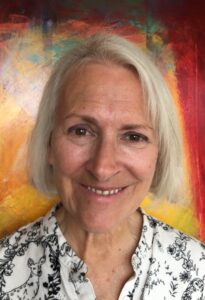
a new start, permission to travel,
to shoot the breeze
with someone closer than six feet away,
to be jostled on the street,
in the grocery store—
life, as it was
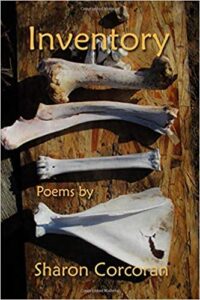
SISYPHUS is an online magazine that values original thinkers and honest inquiry.

a new start, permission to travel,
to shoot the breeze
with someone closer than six feet away,
to be jostled on the street,
in the grocery store—
life, as it was

by John Davis

something was amiss.
small tremors sifted sandy soil.
trees took on a slight tilt, listed.
flowers withered in their beds.
the dog gave up barking.
I lost my job.
at first, I was speechless, then garrulous:
speech spotted with dangling prepositions
meaningless elisions and contractions
punctuated by perseveration and Tourette’s.
my wife came down with echolalia.
we both started talking in tongues.
the house, the yard, everything we owned
disappeared, simply dropped into a sink hole
while a mere fifty yards away
people went on washing cars
mowing lawns, pretending
this was simply our lot in life ¾
people who don’t know their grass
from a hole in the ground, who believe
charity and justice are satisfied
with a couple coins in a beggar’s cup.
by Ed Harkness
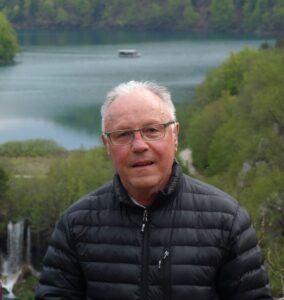
Isolation: cold word, with ice in its veins,
not to mention that other sound, “shun,”
at the end. I think of all those rhymed
relatives: nation, duration, desolation,
ovulation, creation—dozens
of cousins, those blood relations
bound to us by skeins of sound.
Alone, cut off from you, loves,
there’s not much to do but study
a patch of jonquils, seven in all,
half-hidden by an upturned wheelbarrow
at the corner of the toolshed,
their white sockets frilled, rain-spotted,
splashed by in-and-out sun.
Why have I, after all these years,
only now noticed them? Who,
before we came on the scene,
planted them in this out-of-the-way spot?
In isolation, there can be solace,
even as the dying die alone,
even as the dead have no place
to rest, exhausted by their tribulation.
Then there are the other dead,
the red-caps crammed in the town square
howling approval when the king
waves his rubbery arms, shrugs and grins,
ripping sense from every ruined sentence,
spitting back nonsense to wild applause.
I’m thankful for a certain kind
of solitary confinement, the kind
where we’re close by being far.
Here, then, are seven jonquils.
Here’s sunlight on their flared skirts.
I give you their stillness, their brief lives.
When they nod, I give you the wind.
“The Year of the Plague: A Letter,” first appeared in the inaugural issue of Light, an online literary journal published by Lauren Grosskopf, publisher of Pleasure Boat Studio press.

For a while we caught the spirit of things
as they had drifted in the past. And we got
to know them really well. Cobwebs sailed
above the shore…
–John Ashbery
You know what makes me happy? Bach, and birds.
And children, even when they’re ill-behaved.
I’ve spoken with the parents, and the wind
is dropping by this evening, to appraise
the way grandparents have been tending to
inclement weather, and the rites of spring.
This time around being, like, chaotic. —So
by tallying apart things that we know
to be true, or at least not everywhere
riddled with falsehood, we can just relax.
But if the age of miracles has passed,
it’s back to work for us! Untouched by fire,
it’s going to be more grueling this time.
We’ll wait here for the next storm, for its light.
It seems to me we’re finally “getting” life.
Or living. Which is almost the same thing.
If I get too happy, mix me a drink.
I’ve been reliving old errors: here’s my song.
This time, I’m right. Correct me if I’m wrong.
For Bruce Hopewell (2018)
by Ed Harkness

Two sawhorses, a yard-sale hollow core door—my backyard worktable.
On it, a pawnshop of tools: chop-saw, cat’s paw, level, cordless drill, square,
nail apron in whose pockets are, yes, nails, tape, carpenter’s pencil
and a peach pit. Ear protectors, eye protectors, gloves—all close at hand
for my big project, a dog house. I have no dog. That said, I make a racket:
hammer whacks, the urga-urga of the drill, shrieks of bloody murder from the saw.
In the silent spaces between board cuts, ear protectors tossed aside,
I hear a tiny tapping, rapid fire bursts from a delicate machine gun.
They’re barely audible. Pause. Burst of taps. Pause. Burst of taps.
From where? At which point I notice crumbs of wood float down
from the cherry tree. Of course. Woodpecker, this one a tiny downy,
back of the head red-patched, some thirty feet from where I stand.
He has chiseled in the trunk a hole no larger than a quarter—
excavating a pocket in the very heart of the tree. It so happens
a female downy has just hit town. She clings to the trunk
just above the nest builder. She doesn’t give him the time of day,
pulling disinterestedly at a bit of moss. He taps away. She dashes off
as if the prospects might be better elsewhere. He calls it a day,
then rockets in her direction. That’s how it is. You work at a project
with the tools at hand. You hope someone finds your creation—
a nest in a cherry tree, a doghouse sans dog, a 17-foot tall marble statue
of a naked man with a sling—interesting, worthwhile, a home-made gift
utilitarian or ephemeral, like moonlight on a frog pond. Even now,
in the silent spaces of my life, the young downy chicks having
long since fledged, I hear the delicate taps of a sculptor’s chisel
or a woodpecker at work. It’s creation. It’s what we creatures do.
by Bern Mulvey

The problem with Trump stripping the CDC of COVID-19 data is obvious, but still terrifying. — Sarah Midkiff
Masked, gloved, hood up, I’m eating takeout.
They don’t have to tell us the true numbers.
Coyotes and quail are taking back the streets.
The President says he’s doing great.
They don’t have to tell us the true numbers.
We have an Arizona Department of Economic Security
but the link is down. The President is doing great
as I search for rice and milk and toilet paper.
We have an Arizona Department of Economic Security,
I’m on hold. I pass a lady On the Trump Train
as I search for rice and milk and toilet paper.
She packs a .45 at Sprout’s, no mask, takes the last
Sola Bee Honey, the shirt On the Trump Train
made in China. Like the flash bang grenades
they threw at the Phoenix Free-Speech Zone last
night, the police tape at Surprise Park sparkles
in the sunlight. Just like China, flash grenades
were thrown at us in a Free-Speech zone,
a loud bang, smoke and in the middle sparks.
My mother has been coughing for a week.
Surprise Park has police tape, the kids play zone
closed. Maricopa Public Health is not at their desk.
My mother has been coughing for a week,
the homeless camp on Jefferson is empty.
Maricopa Public Health is away from our desk.
A masked deli man at Albertsons tells me,
the homeless camp on Jefferson is empty,
and the apartments on Grant and 7th burn.
The masked deli man at Albertsons tells me,
I do see a decrease here in the old and sick.
On television, the apartments at Grant and 7th burn,
and Arrowhead Towne Mall has a rabbit nest.
I too see a decrease in the old and sick.
Banner Hospital says they will call me back.
High at the vacant mall lot, I watch a rabbit nest.
Lindsey Graham worries that I won’t work.
Banner’s mobile testing unit will call me back,
coyotes and quail have taken back the streets,
Graham feels I’m disincentived to work,
they don’t have to tell us the true numbers.
Coyotes and quail have taken back the streets.
The President says he’s doing great.
They don’t have to tell us the true numbers.
They don’t have to tell us the true numbers.
by Ed Harkness

Thus, in the florid script of 1870—
ink now well-faded—the census taker
for King County, Washington Territory,
has listed the names on a page titled
“Half-breeds not otherwise counted.”
The names have blurred—a flock of birds
lost in fog. One clear name: “Mathilda,”
age one year. On the line above, Mary,
her mother, 18, surname illegible—
another lost bird. I know these two names.
Thus, in the florid script of 1870
are my kin accounted for, more or less,
in the mundane archives of life on earth,
with its cave paintings, pyramids, gods,
computers, WMDs, self-driving cars.
Somewhere along the line, Mathilda,
now 20, marries a Swede—something Lindstrom,
a fisherman, owner of a skiff in which to skim
the turgid waters of the Duwamish River,
netting sockeyes and silvers when, then,
the river hummed, clear as quartz.
I’ll never know what Mathilda looked like.
Her skin would have been tawny, cedar-
hinted, her hair night-sky dark and thick.
Even at one, her eyes would be hungry,
bright as her Haida mother’s, opened wide
to taste the colors and sounds of the world,
to drink in the new thing called light—
łúkwał, in Lushootseed, a tongue
she may have never learned or heard.
In 1911, Mathilda, dying at 41,
lays herself down on a mat of ferns
on the river shore. She hears the voices
of rocks, trees, the green song of moss
on the alders. She listens to Lindstrom
call to the salmon in Swedish, kom lax,
hears the thunka-thunka of the skiff’s engine,
Lindstrom baling with a coffee tin,
hauling hand-over-hand a net to draw in
his catch, watched over by reeling gulls—
a frenzy of sobs just over his head.
Mathilda dies in the twilight of a slack tide,
not far from Point No-Point. Dying, she hears
the tide turn, hears Lindstrom’s broken whisper,
My darling, must you leave so soon?
Thus, in the florid script of 1870, is Mathilda,
now and for all time, listed on a page titled
“Half-breed not otherwise counted.” I’ve revised
the page to include a one-year-old girl’s eyes,
opened wide to drink in the new thing called light.

Hand me my armadillo mandolin.
I need to sing.
Turn on the Transporter Machine to the moment
shimmering alongside this one.
Somewhere wind is blowing
trailing a wake of sunlight
through a hillside of spring grass.
I see a sailboat leaning
thin as a butterfly
under a bruised sky, so piercingly white
everybody’s stopped on the Embarcadero
peering over their steering wheel
trying to remember where they were going.
The smoke hasn’t gone away
this time, new fires are breaking out,
even in Oregon, and the fire season
is just beginning.
Ash flecks the cars, the leaves,
plumes of it, risen thirty thousand feet,
blocked out the sun, blocked the blue rays,
turned the air Martian orange.
In the City, fog darkens it further,
streetlights are still on. It’s like midnight—
at noon. In the East Bay the sun
is a small, orange disc, a eucharist
rising from the demonic region of civil war,
to hang over the battlefield in the dawn haze,
the weeds and crushed dandelions
beginning to lift, in hesitant, springing upticks,
to waver over the bodies. One soldier is propped up,
as imagined in The Red Badge of Courage,
leaning against a tree as if taking a break,
jaw slack, mouth agape,
ants passing each other along his lips
as if along a window sill. He’s come back to life
on a chair and holding a cardboard sign
next to a crooked blue tent under the overpass.
The air knows what has happened,
the answer no longer blowing in the wind.
It’s in the smoke that doesn’t move.
We’re so divided now, it’s no wonder
civil war comes to mind. What can you do
in this bizarre light and toxic ash
but close the windows?
Going out’s as bad as staying in,
everybody contracted to whatever channel
profits by reinforcing his opinion.
On top of killing the earth
this shit is ruining my poetry.
Our atmosphere of war is appropriate, people
shot in the back by police, most generals
afraid to speak out, dictatorship nearly in place.
Nobody’s in control but a creep,
extolled as the Messiah, by mostly good people
bewildered by neglect and damaged
self-esteem, when what’s
really in control is the burning earth
which is burning
and burning
and even now, I’m about to get in my car
drive across the bridge to meet someone
for coffee. We’re all complicit
in this march toward global extinction.
Inertia is a motherfucker.
Going outside now, the news says,
is like smoking eight cigarettes.
We’re a race of suicidal idiots
conditioned to band together in small groups
that circle each other warily, despise each other,
and we often don’t even know why.
Perhaps we mistake this huddling for love.
Romeo and Juliet are dead,
having dared to love, having finally united
their feuding families, the Capulets
with the hated Montagues, in mutual grief,
by killing themselves.
Where does that leave us,
who are still in love, from different tribes,
still alive, and still needing
fresh air?
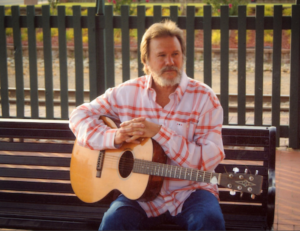
The first day of classes
my second-grade year
there were four children
from a family that had
just moved into our school district
in the most remote corner
of west central Arkansas
who showed up barefooted.
I didn’t know why. Sure
they were poor. But we all were poor.
Do not make fun of them
our teacher did not have to say
hardship being something
every student in that one room
schoolhouse understood.
I worried about what they would do
when the weather changed.
But they moved on before
I could find out, following
the harvest, our teacher said.
by Paul Lojeski

My best pal dead almost
four years now, though,
after all this emptiness
I don’t know if we really
knew each other at all.
Connected for four decades
and then some. But time
has done its usual cruel
number on memory and
what was/is real, but
whatever, none of it’s
worth spit this cold, rainy
April night I’m remembering
him. All I know is I miss
his voice flying across the line
over those vast decades
of cosmic movement and
his laugh and mine locked
together, leaping at the sky.
by Ed Harkness

He has arrived earlier than expected,
light as a small bag of apples
in my lap. Now and then he rouses
to blink the black opals of his eyes,
still mostly sightless after all that time
in the dark. I’m his father’s father and—
oh, what the hell—I’m on a short leash,
wondering if my departure will likewise
be earlier than expected—which is,
I suppose, always the case. The future
announces itself as a quiet, insistent
tap at the door. The new being
in the crook of my arm yawns.
Now his lips part in a reflexive dream smile
I take to mean he finds the condition
of being alive curious, wryly amusing,
as if to say, So, where am I exactly?
on this bright November morning,
a day I’ve already subtracted
from the dwindling total. His eyelids flutter,
thinner than the skin of a hatchling robin.
Now I’m reminded babies must eat.
His mother whisks him out of my arms,
off to a rocker in a dark corner,
where, after a few urgent squalls, he’s quiet,
the sucking audible even from across
the room. I’m empty-handed once more,
happy in a way I’ve never been.
I plan to attend his third birthday,
already scripting, after the other kids
have left with their frosting-smeared chins,
the conversation we might have,
the one where I tell him I held him
when he was one day old, his eyes
were exquisite blueberries, different
than the gray-green they are now.
He’ll be only mildly impressed,
more interested instead in tearing off
the paper of one last gift:
a box with a silver latch and key.
He’s wide-eyed to lift the wooden lid,
to get a glimpse of things to come.
I’m more intrigued in learning how
to tie together strings of time,
quilting swatches of months and years,
stitching my life to his, as if I had such power,
the slightest ability to forestall for even
an instant that insistent tap
from arriving sooner than expected.
Still, I’m swaddled in the glory
of the moment, thankful to have held him,
to listen to his mother hum in the dark,
to hear the creak of the rocker
on the hardwood floor.
~Cosmo MacKenzie Harkness,
b. November 5, 2019
Note: This poem first appeared in the inaugural issue of Lights, and online journal published by Pleasure Boat Studio press in March, 2020.
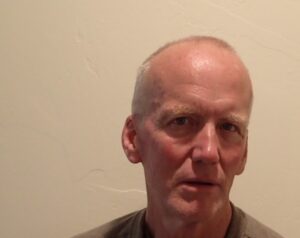
This Indian man is instructing us
about the ways of a native dance,
with illustrations and young people
regaled in their finest beaded clothing
and they sing and pound drums
and the dancers move in ways I have
never seen and the music is notes
I have never heard, like the sound
creek water makes hitting stones under
a distant crow. The man introduces
a new dance and he calls the dancer
by the wrong name and his young
daughter laughs at him just exactly
the way my daughter laughs at me.
A million crows fly over the world
and if we look up we will see a million
silhouettes, each one as different
as Gene Kelly is to these dancers,
but a daughter’s laugh, that,
that sting of wrath wrapped inside
the music of a child’s delight, I
think that’s the same sound
no matter what dance you do,
no matter what creek you hear.
previously published in Galway Review
by Helen Beer
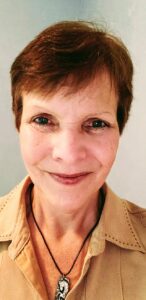
He struggled to find the truth,
but it eluded him. She could
see it reflected in his ever-
shifting eyes; they defied him,
revealed his delusion.
His claim—that his facts were
derived from legitimate sources,
that he didn’t, as she suspected,
glean his talking points from
memes—was laughable.
Point-by-point, he spouted,
nearly verbatim, the talking
points of the far right; he
repeated debunked conspiracy
theories as though gospel.
And she listened, frightened
by the deceit he’d come to
accept, embrace, believe,
regurgitate. But she held
her tongue.
She knew there was nothing
she could say, no data she
could present, no source she
could cite, that wouldn’t be
met with derision, dismissal.
For he was lost in a fog of
lies, and an unquestioning
acceptance of only those beliefs
with which he agreed. He was
steadfast, static, immovable.
And, despite her fear, she was
envious, at times, of his commitment,
of his tribe, of his unwavering
belief, of his alternate reality. And
then she caught herself.
No. I will not dismiss all that
I know, all that I have learned.
No man is worth compromising
my values, my belief system,
my self-respect.
“I can’t do this anymore. I need
you to leave. You’re not good for
me. You’re certainly not good for
my mental health. It’s time for you
to go. Now.”
And then she cast her ballot. For the
first time in four years, she felt
vindicated, powerful. She knew he
would no longer control her every
waking thought. She was free.
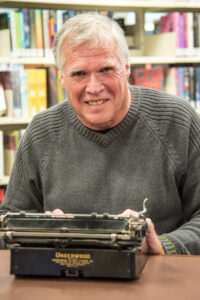
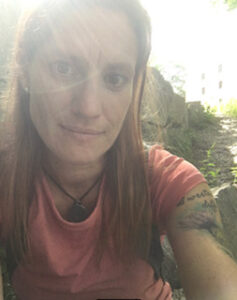
I see them running through fields
of waist high grass, chasing sun
between elm islands of shade,
summer bursting in their naked chests.
Orange lilies flame against
dirty white barn sides
decorated with abandoned tires
begging to be rolled down the hill.
Once wrestled from slumber, the sun baked
rubber burns and wobbles under determined hands,
nervous songbirds scatter from its path.
A pause a breath a grunt and heave.
Then shouts of exhilaration
at having done something forbidden
and destructive. The tire, left
where it lands in flattened ryegrass,
will be forgotten, become part of
a landscape it should not belong to.
Filling with the debris
of a dozen snow melts, sheltering
springs of rabbits and winters of rats,
the edges will camouflage
with chickweed and clover.
Yarrow and moss will grow
where once there was mischief and quickness.
And years from now, when this place
seems more dream than memory,
there will still remain
that unchanging wreath
left in memory of a secret between boys.

long stemmed dandelions
bouncing in the meadow
I didn’t notice the bees at first
the weight of each one
pulling down each stem
and letting go
one after another
a field of springing keys
played without sound
I heard a melody
rise from the field—
a death song
a feeling spread through me like water
soundless as dawn
the bees played flower
after flower
going extinct
still singing
POST UPDATE: Sisyphus reader Quantum Kreilkamp has set this poem to music and the author requested the link be shared.
by Mark Bauer
It was a fleeting moment early one Sunday morning on the road in northern Ohio. Such moments always are.
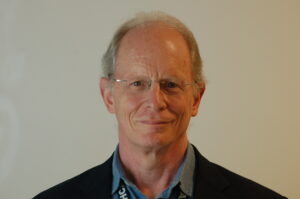
…la rota che tu sempiterni
desiderato, a sé mi fece atteso
con l’armonia che tempere e discerni…
—Paradiso, Canto I
…the vast
wheel you have made eternal by desire
held me intent to hear the harmony
you tune in all its parts…
—trans. Anthony Esolen
I.
The Great Black Swamp is platted farmland now,
drained by a vast, strict grid of ditches spaced
each quarter-mile. From muck rose land to plow,
these quilt-square fields crosshatched with furrows traced
from sluice to sluice in fertile rectitude.
The towns between the Maumee and the Portage
grew flush in times of plenty and renewed
themselves, somehow, in times of shortage.
My last time through I’d grown intrigued and learned
this history. Dawn now: I’ve left the turnpike,
searching for coffee and breakfast, and turned
along a downtown street whose stores stand stern, like
squat, square-shouldered presbyters who ask,
in measured red-brick tones, my business here.
“Sustenance,” I say. And through a mask
of silent shopwindow blinds their answer’s clear:
No lights click on. But up ahead some cars,
American, cushy, vaguely dated,
are clumped outside a diner and a couple bars.
The diner’s Open sign in understated
neon provides the sole sign of life this early.
I enter through the steamed up plate-glass door.
It’s empty but for one booth full of burly,
jovial men; each one of them is more
than half-again as old as I, and I’m
not young. But by their mud-flecked boots I know
Sabbath began some hours ago for them
out in the corn and soybean fields below
a slate-gray sky and fading morning star.
Tucked over in a corner booth, I never
quite catch the quips and stories that they share—
just voices stripped to sound, a wordless river
washing over me, swift waters tumbling in
a rush of glinting, speckling current welling
up, cascading from an origin
far older than the stories they’ve been telling.
Carried downstream, their stories run like silt
scraped up along a broad, brown course from scarp
and bed to settle here as bottomland built
clod by clod, then drained, surveyed, carved up.
They revel in their well-kept stories tossed
around in repetitions recast slightly then
end-stopped by laughs and ricochet guffaws.
These eddy, pool, settle among the men:
Indecipherable to transient eyes
and ears: each story, day, year, generation.
Somehow the repetition sanctifies.
Bring toast as offering, coffee as libation.
II.
The waitress enters, tray in hand. Despite
the hour she moves briskly: soiled plates removed,
glasses refilled, OJ topped off—She’s quite
handy with coffee pots and bowls of grooved
white ampulets of Half-&-Half and packets
of Sweet’n Low. Amiably she glides in
and out; her own contrapuntal banter gets
taken up into the flow as she slides in
another plate. And as their voices blend
another Sunday morning slips in
among these ruddy men, this big-boned blonde.
This blonde: round-faced, apron flapping, wide hips in
snug and faded low-rise blue jeans pie
in slow fan light—and, once and always, someone’s
kin. Their tales, jibes, plates careen, collide
in over-weaving rhythms sprung: Done once
and done a thousand times, she leans and stretches
off across the table wiping milk-dot pearls—
her low-slung jeans and rising top reveal what catches
each man’s eye: A wheel with eagle’s wings unfurled
from hip to hip in blue-green dye. A half-stop’s
silence marks this grace, what these and their folk
half-know between bedsheets, among their crops,
in proper rows in pews: The wheelwork
creaks ahead; each day the escapement ticks
against this mainspring of unbridgeable
nearness; the spring stays wound; these days, these clicks,
this cafe, this winged wheel mean nothing, mean all.
Raise your voice in ache and jubilation:
Bring toast as offering, coffee as libation.
by Diane Ray
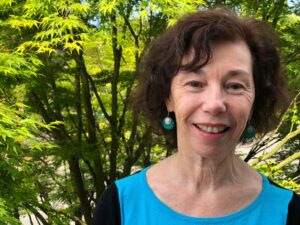
ride out the Corona in the saddle of famed hyperbole,
but, seriously, would you call it Splendid Isolation?
If only the only thing to fear were fear itself, or we
didn’t have to fire until we saw the whites of its eyes,
leaving me on patrol priming my radar ears awaiting
my husband’s arriving car post reconnaissance, then
flying downstairs to beat my beloved’s hands to all
the apertures. I intercept the gauntlet– doors, buttons,
knobs. “Welcome home, soldier!” He’s in no mood.
“Go back upstairs! You shouldn’t be down here. I’ve got
this!” My blessed non-obsessive mate, but I know he’s
changing gloves the CDC sanctioned way, then kneels
on newsprint wiping off peril in cellophane which he
believes farfetched but complies to be PC, the abundance
of caution hack, hedge against feeling helpless. I know he
dropped his clothes into a virgin garbage bag when I hear
the tattoo of bare feet streaking upstairs where I lit my
warrior’s way to COVID’s new, nonsectarian Mikvah,
the shower, where he scrubs and purifies post early
morning mission, geezer hour, Whole Foods detail.
———————————————————————————————
Mikvah ritual bathing place for purification according to Jewish law

after the sculptures of Deborah Butterfield
In my dream the life-size metal sculpture,
a horse, not solid, but with open spaces,
the connecting curved plates creating
an abstract of the beautiful animal,
the long nose open from crest to muzzle,
belly barrel open too. And yet he
(I knew it was a he, a bay) looked full
of spirit, ready to come to life.
It came to me how we are all
only partially formed and always
in the process of formation,
partially exposed, partially protected.
In children we can see that easily
as they come into being, opening
and closing and opening again.
I’m thinking now about the passage
from the book my husband read to me
last night, just before I slept:
how Jefferson, so long the optimist
concerning the human spirit,
fell into a depression at his life’s end.
And his old friend Adams,
opened into hope at the end of his,
both dying, five hours apart, on July 4.
I’m thinking of the woman on the radio,
called in to quell the rioting kids in the juvenile hall.
They suddenly quieted in their cells
as she whispered, though all could hear,
to the one she knew best on the block,
Jimmy, What’s this about?
When she told the boys stories of the Japanese prison camp
where she’d been held as a child, they listened too
because she opened herself to them.
I’m thinking of my mother,
who became a waitress, then a wife,
then a woman who wanted to die,
and tried, so she was sent to Napa State Hospital,
which she hated. She saw it as the insane asylum.
But then she changed again,
and when she was back home,
baked Christmas cookies,
brought them to the others there,
and was happy
for a while.
I want to ride that horse that’s open and closed,
broken and whole, keep him close to me
so I can remember that always,
even far along the road,
we can learn to be open.
And that sometimes
it is possible
to make our own miracles.
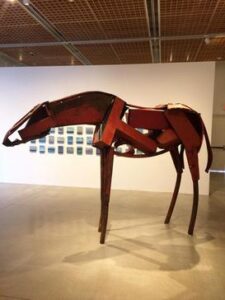
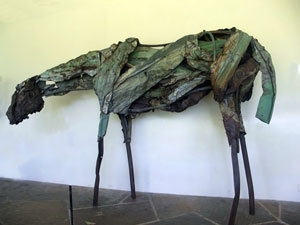
In works of art, just as design choices have both aesthetic and emotional impacts, so too does the absence of design. Ultimately, design also has environmental impacts, which can be brought about either by the materials used in a work or by the presence of the completed work. I was thinking about all of this while writing “The Art of Nothing.”
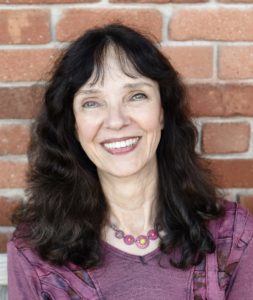
Two New York artists are vying
over rights to nothing. Both claim
ownership of the idea: a gallery
with empty walls, nothing standing
on the floor. Art historians concur:
the second artist to exhibit nothing
must acknowledge the first.
How about books with pages
not marred by words? Authors
can give readings where everyone sits
in silence for forty-five minutes,
then waits in line for an inscription.
All authors must give credit, of course,
to the first one to publish nothing.
Wikipedia already has a list of silent
musical compositions, starting with
Funeral March for the Obsequies
of a Deaf Man, 1897, by Alphonse Allais.
Why not invisible buildings to end
habitat destruction and global warming
and give the earth back to itself?